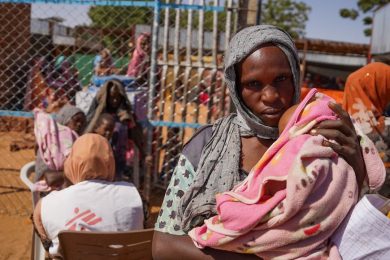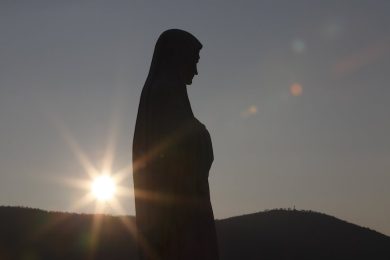SYDNEY (CNS) — Australia’s five archbishops said they would consider asking the Vatican for clarification on concerns raised in a government inquiry into sexual abuse of children in the church.
Among those concerns were whether the seal of confession includes only the sins confessed, not other information revealed in confession, and under what circumstances — specifically concerning an abuser — a priest could withhold absolution.
Archbishop Philip Wilson of Adelaide said the permanent committee of the bishops’ conference would meet in early March to set the agenda for its May meeting. If the full conference approved, documentation could be sent to Pope Francis after the May meeting, asking the pope “to expedite it and deal with it,” Archbishop Wilson said.

“These are two very specific issues where the church must do more work at clarifying its own position so that those of us who are responsible for the formation of priests can make sure that our priests are properly educated in these matters,” said Archbishop Timothy Costelloe of Perth.
Archbishops Wilson and Costelloe were among five archbishops who testified to the Royal Commission of Inquiry into Institutional Responses to Child Sexual Abuse Feb. 23 and 24, the final two days of three weeks of public hearings. The commission — which has spent nearly four years hearing testimony, including from victims of abuse — heard from a wide range of witnesses, including scholars, doctors, theologians and members of the Pontifical Commission for the Protection of Minors. It is expected to issue a final report by the end of this year.
One of the commissioners, Robert Fitzgerald, summarized the dilemma faced by church leaders: “Isn’t the reality that you have two sacred obligations that are now in conflict? You have the sacred duty to protect children based on Scripture, the church’s teachings and its commitments to civil authorities. And you have an equally sacred commitment to the seal of confession. In a sense, the church is in a dilemma, a dilemma that it equally wishes to protect children and equally wishes to maintain the seal of confession.”
All of the archbishops agreed it was a dilemma, but not all agreed on how they would handle certain situations.
Archbishop Mark Coleridge of Brisbane said he would be prepared to withhold absolution in certain cases involving sexual abuse of children, but “it would need to be handled skillfully and sensitively.” Archbishop Denis Hart of Melbourne said he would withhold absolution unless the person confessing “would go to the authorities or seek medical help or something like that.”
But Archbishop Anthony Fisher said he would “exhort them” to turn themselves in to police and to get “medical, psychological, psychiatric help,” but said, “I don’t think I can make a condition of absolution that a person incriminate themselves.”
A recurring question throughout the three weeks was whether celibacy — a promise not to marry — was a contributing factor in priests and religious abusing children. Several of the archbishops said if a person did not have the capacity to accept celibacy, perhaps they should not be priests, and they acknowledged that inadequacies in formation could be contributing factors to abuse. However, they noted that seminary formation and vocational discernment had changed, especially in the last decades, as church leaders gained a greater understanding of the nature of abusive behavior.
However, Archbishop Fisher pointed out the evidence from social science that the great majority of child abuse occurs within families.
“So clearly it’s not just a problem for celibates,” he said. “And I think people can hide behind celibacy and the clerical state; they can hide behind marriage and the family state. People, predators, can use these situations in awful ways.
“I think that in Australia today, we now know that the majority of Australians of marriageable age are now not married, and many of those are not sexually active at any particular time. We don’t regard those as a hazard to the public,” he said. “So it’s not something about celibacy or sexuality per se that makes you a risk to children or to vulnerable adults for that matter. It is about have you learned to integrate sexuality into the rest of your state, whether it’s a priestly religious life or a married life or a professional single life.”
During the initial hearings Feb. 6, the commission reported on summary data showing that between January 1980 and February 2015, 4,444 people made allegations of child sexual abuse that related to more than 1,000 institutions. The statistics did not differentiate between allegations and proven cases.
At the end of the final day of the hearings, Archbishop Hart, president of the bishops’ conference, reiterated his apologies to the victims, “to all those who’ve suffered, to their families, to those who continue to suffer, because it’s a terrible, terrible scourge in the life of the church and of the community.”
The archbishop, who with his colleagues acknowledged Feb. 23 that the abuse of children in the church was “a catastrophic failure in many respects, but primarily in leadership,” also thanked the commission for forcing “us to look so closely at what the church needs to be.”
Afterward, he issued a statement making “this commitment to the survivors of child sexual abuse, the Catholic and broader community: I will do all within my power to ensure the abuse of the past never happens again, that the reforms my fellow bishops and religious leaders have endorsed over the past years will be implemented. I reiterate that the Catholic Church in Australia will continue to support the survivors of child sexual abuse.”























A priest may always withhold absolution if the confessor is not truly contrite and penitent.